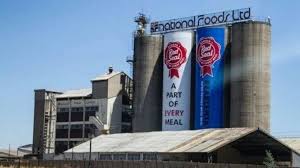National Foods explains VFEX delisting
National Foods Holdings Limited, listed on the Victoria Falls Stock Exchange (VFEX), has announced its decision to delist from the bourse, stating that it no longer requires capital from public markets and aims to reduce the complexities of trading in less active markets. The company intends to transition to a private entity.
The agro-processing firm became the ninth listing on the foreign currency-denominated VFEX when it migrated from the Zimbabwe Stock Exchange (ZSE) in January last year. At the time, the company expressed that the move would help shareholders realise the value of their holdings, provide a more accurate benchmark for the stock’s performance, and mitigate valuation volatility. It also anticipated that the migration to VFEX would improve its regional profile and commercial standing, strengthening the company’s prospects for local and regional expansion.
However, in October, Zimbabwe’s largest food manufacturer, producing a wide range of fast-moving consumer goods and animal food products, made a surprise announcement that it plans to delist from the exchange — just under two years after migrating from the ZSE.
An extraordinary general meeting has been scheduled for December 18.
In a circular to shareholders outlining the largely unexpected decision, which includes a share repurchase exercise, the company indicated that it no longer requires capital from public equity markets in the near term, reducing the benefits of maintaining a VFEX listing.
“Delisting National Foods will provide the company with increased flexibility to streamline its operations and focus on long-term strategic objectives,” the notice reads.
“The company no longer requires capital from public equity markets in the near term, further diminishing the advantages of staying listed on VFEX.
A significant portion of National Foods’ shares—specifically 75,18%—is held by two major shareholders, which limits the influence and participation of smaller retail investors, thus reinforcing the rationale for delisting.”
The company further noted that delisting will allow it to redirect spending on regulatory and compliance costs towards initiatives more closely aligned with its current needs.
The delisting, which is subject to shareholder approval, will be accompanied by a share repurchase offer for up to a maximum of 13 647 198 ordinary shares, representing 20% of the company’s issued shares. The offer provides shareholders the opportunity to sell their ordinary shares at a consideration of US$1,71 per share.
“This move allows shareholders who prefer not to hold private shares in National Foods to exit their investments before the delisting,” the circular explains. “Once the offer concludes, National Foods will proceed with the delisting, transitioning to a privately held entity.”
The offer will open for acceptance on 20 December and close on January 17, 2025. The share repurchase will take place on Wednesday, January 29, 2025.
Regarding the benefits to shareholders accepting the offer, the company stated that it provides an opportunity to sell shares at a price reflecting their true value, addressing the challenges of low liquidity and limited trading on VFEX. The offer also provides a clear and structured mechanism for selling shares, bypassing the complexities of trading in a less active market.
“Exiting National Foods allows shareholders to reallocate their capital to more appealing investment opportunities,” the company said. “Shareholders will also benefit from exemption from Capital Gains Tax on the disposal of their shares through VFEX.”
At the same time National Foods is contemplating its departure from VFEX, other companies are in the process of listing their shares on the exchange. Among them are Bridgefort and Tanganda Tea Company.
Tanganda Tea company estates
VFEX Chief Executive Mr Justin Bgoni previously stated that the exchange continues to attract both domestic and foreign listings, with a target of more than six new listings by the end of 2024.-chronicle











